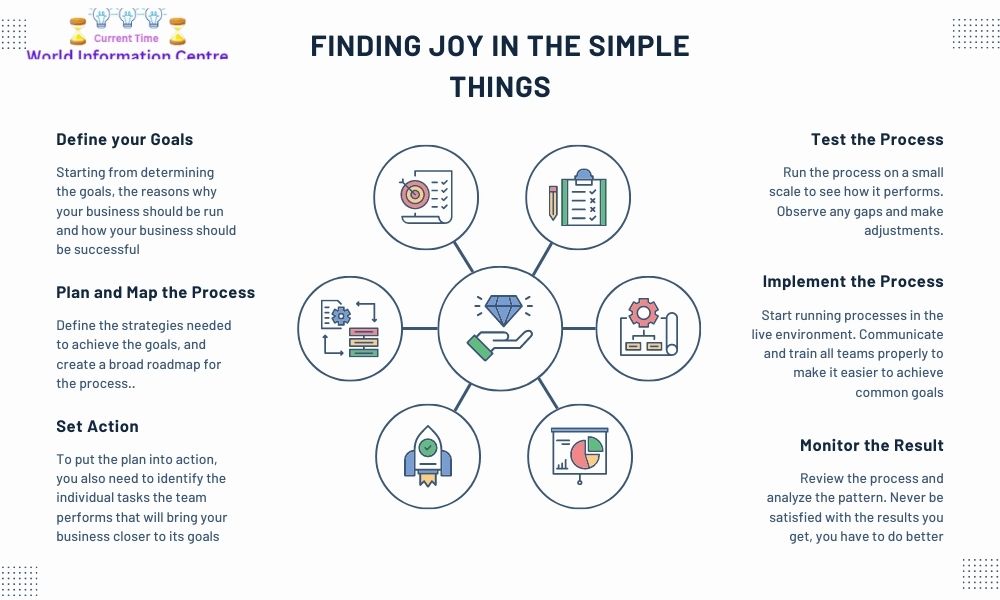Finding Joy in the Simple Things: Embracing Slow Living
SEO Meta-Description: Discover the beauty of slow living and finding joy in the simple things. This article explores the concept of slow living, its benefits, and practical tips to embrace a more intentional and fulfilling lifestyle.
Introduction
Table of Contents
In today’s fast-paced and hectic world, the concept of slow living offers a refreshing approach to finding joy and contentment. Slow living encourages us to savor the present moment, embrace simplicity, and prioritize meaningful experiences over constant busyness. By slowing down and appreciating the simple things in life, we can cultivate a deeper sense of joy and fulfillment. In this article, we will explore the art of slow living, its benefits, and practical tips to incorporate it into our daily lives.
Understanding Slow Living
1. Defining Slow Living
Slow living is a lifestyle philosophy that encourages individuals to slow down, be present, and engage in activities mindfully. It embraces a simpler and more intentional approach to everyday life.
2. Core Principles of Slow Living
- Mindfulness: Being fully present and aware of each moment.
- Simplicity: Embracing a minimalist and clutter-free lifestyle.
- Connection: Prioritizing meaningful relationships and fostering a sense of community.
- Balance: Finding equilibrium between work, leisure, and rest.
- Appreciation: Gratitude for the small joys and simple pleasures in life.
The Benefits of Slow Living
3. Reduced Stress and Anxiety
By slowing down and focusing on the present moment, slow living can significantly reduce stress and anxiety levels.
4. Enhanced Well-Being
Embracing a more intentional and balanced lifestyle can lead to improved overall well-being and mental health.
5. Deeper Appreciation for Life
Finding joy in the simple things cultivates a deeper appreciation for the beauty and richness of life.
6. Stronger Connections
Slow living encourages meaningful connections with others and fosters a sense of community and belonging.
7. Increased Creativity
A less hurried lifestyle provides more space for creativity and self-expression.
8. Better Work-Life Balance
Prioritizing leisure and self-care in slow living promotes a healthier work-life balance.

Finding Joy in the Simple Things
Practical Tips for Embracing Slow Living
9. Mindful Morning Rituals
Start your day with mindful rituals, such as meditation, journaling, or enjoying a leisurely breakfast.
10. Limit Digital Distractions
Set boundaries with technology to prevent constant distractions and be more present in your daily activities.
11. Practice Gratitude
Take time each day to reflect on and appreciate the blessings and simple joys in your life.
12. Create Space for Solitude
Set aside time for moments of solitude and reflection to recharge and connect with yourself.
13. Engage in Slow Activities
Embrace slow activities like reading, gardening, or crafting that allow you to immerse yourself in the process.
14. Enjoy Nature
Spend time in nature regularly to reconnect with the natural world and find serenity.
15. Cook and Savor Meals
Cooking and savoring meals mindfully can be a gratifying and meditative experience.
16. Cultivate Patience
Practice patience in daily interactions and tasks to reduce stress and frustration.
Slow Living in the Digital Age
17. Set Digital Boundaries
Limit your time on social media and establish designated tech-free hours each day.
18. Unplug on Weekends
Consider unplugging from digital devices during weekends to focus on meaningful face-to-face interactions.
19. Prioritize Real-Life Connections
Nurture and prioritize real-life connections with family and friends over virtual interactions.
Incorporating Slow Living at Work
20. Work Smarter, Not Harder
Prioritize tasks based on importance and deadlines to avoid overworking yourself.
21. Take Mindful Breaks
Incorporate short mindful breaks during work hours to recharge and regain focus.
22. Engage in Creative Pursuits
Bring creativity into your work by exploring innovative solutions and thinking outside the box.
Overcoming Challenges to Slow Living
23. Cultural Pressure
Challenge societal norms of constant productivity and busyness by embracing slow living at your own pace.
24. Fear of Missing Out (FOMO)
Overcome FOMO by recognizing that slow living allows you to fully immerse yourself in experiences and savor life’s moments.
25. Guilt and Self-Compassion
Release guilt about slowing down and prioritize self-compassion in your journey toward a more intentional lifestyle.
FAQs
- Is slow living about being lazy or unproductive?
- No, slow living is about prioritizing meaningful activities, savoring experiences, and finding balance, not laziness.
- Can slow living be practiced in a busy city life?
- Yes, slow living can be embraced in any environment by prioritizing mindful and intentional living.
- How can slow living benefit relationships?
- Slow living fosters deeper connections with others by prioritizing quality time and meaningful interactions.
- Is slow living about abandoning technology altogether?
- Slow living encourages setting boundaries with technology and using it mindfully, not abandoning it entirely.
- Can slow living improve my mental well-being?
- Yes, slowing down and being present can reduce stress and improve overall mental well-being.
Conclusion
Embracing slow living allows us to savor the simple joys, find contentment in the present moment, and foster meaningful connections with others. By prioritizing mindfulness, simplicity, and balance, we can lead more intentional and fulfilling lives. Slow living invites us to step away from the constant rush and appreciate the beauty in the everyday. Incorporate these practical tips to embrace the art of slow living and find lasting joy in life’s simplest pleasures.
Financial Wellness: Strategies for a Secure Future

